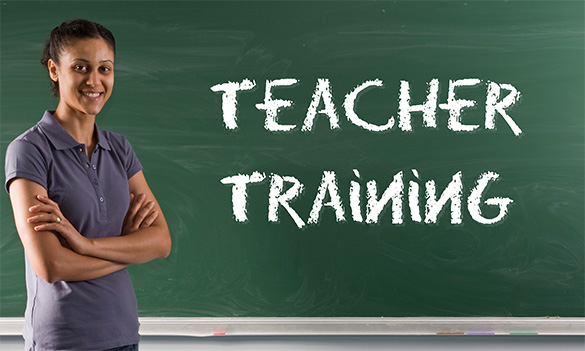Darsazma News Hub
Your go-to source for the latest news and insightful information.
From Rookie to Rockstar: Teacher Training Unplugged
Transform your teaching journey from novice to expert! Discover essential tips and tricks in our engaging teacher training blog.
Navigating the Journey: Essential Skills Every New Teacher Should Master
As a new teacher, mastering essential skills is crucial for navigating the complexities of the classroom environment. One of the most vital skills is classroom management. Establishing clear rules and routines helps create a safe and productive learning space. Additionally, effective communication skills are imperative; being able to convey lessons clearly and engage students fosters a positive educational experience. Here are some key skills every new teacher should prioritize:
- Organizational skills: Keeping lesson plans, materials, and schedules in order is essential for smooth day-to-day operations.
- Adaptability: The ability to adjust teaching methods based on student needs can greatly enhance learning.
Furthermore, emotional intelligence plays a significant role in a teacher's success. Understanding and responding to students' emotional needs creates a supportive atmosphere that can enhance their learning. Another critical aspect is building strong relationships with both students and parents. By communicating effectively with families, educators can foster partnerships that benefit students' academic performance. In summary, by developing these essential skills, new teachers can set themselves up for success and positively impact their students' lives.

Avoiding Common Pitfalls: What Rookie Teachers Wish They Knew
One of the most significant pitfalls that rookie teachers encounter is the tendency to overprepare and micromanage every aspect of their lesson plans. While being thorough is important, new educators often wish they knew that flexibility is equally crucial. Embracing teachable moments and adapting lessons based on student needs can lead to more engaging and effective classroom experiences. Rather than sticking rigidly to a plan, allowing for spontaneous discussions can foster a more dynamic environment conducive to learning.
Another common mistake among rookie teachers is the failure to establish strong relationships with students and their families. New educators often underestimate the impact of communication and rapport, wishing they had prioritized building these connections from the start. To enhance classroom management and student engagement, it’s vital to connect with students. Regularly reaching out to families through newsletters or emails can also foster a supportive learning community and empower parents to be involved in their child’s education.
The Power of Reflection: How to Transform Your Teaching Through Self-Assessment
Self-assessment is an invaluable tool for educators seeking to enhance their teaching methods and overall effectiveness. By engaging in the power of reflection, teachers can critically evaluate their approaches, identify areas for improvement, and foster a deeper understanding of their students' needs. This process often begins with simple questions such as:
- What worked well in my lesson?
- What could I have done differently?
- How did my students respond to the material?
The transformation that comes from self-assessment can lead to significant changes in teaching practices and student engagement. As educators reflect on their experiences, they uncover patterns and insights that can inform future lessons. For example, a teacher might discover that collaborative activities yield better student engagement than traditional lectures. By embracing these insights and adapting their teaching strategies accordingly, educators not only improve their effectiveness but also create a more dynamic and responsive learning environment. Ultimately, the power of reflection equips teachers with the tools to grow professionally and support their students' success more effectively.